Faith Calls Us to be Neighbors: A “Thank You” Letter to Bolivia
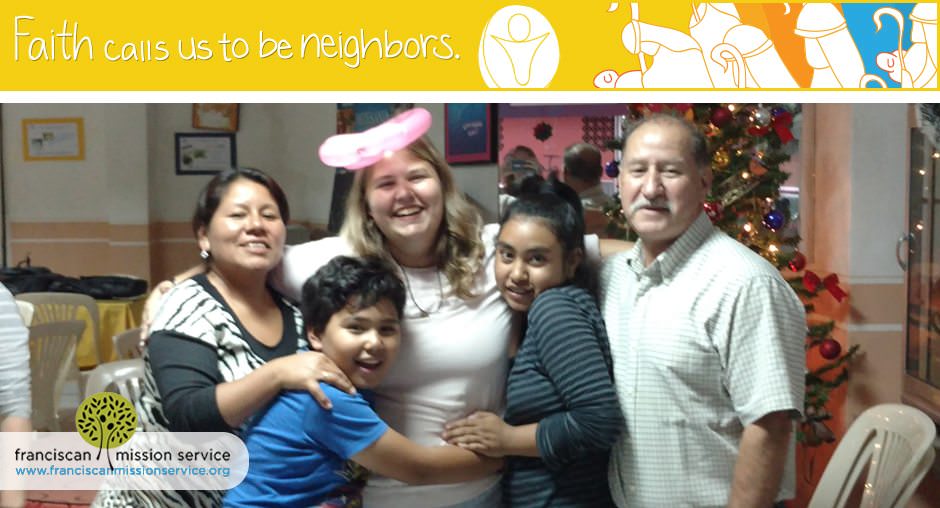
Editor’s note: As part of FMS’ 2017 Advent blog series, missioner Catherine Hope Sullivan shares her gratitude to Bolivia, who has welcomed her in a variety of ways for the past two years, as she leaves the country today.
Dear Bolivia,
Today, I leave you and I cannot believe it. You have been everything to me these past two years—my joy, my hardship, my strength, my tongue, my tears, my growth, my annoyance, my pride, my mother, my food, my laughter, my heart.
When I arrived, more than 23 months ago, I was scared. I cried on the plane, I wondered and prayed, and I practiced my opening line to my host mother in your language, of which I knew nothing. Right away, you welcomed me. Your warm arms held me, and your ears were patient with my Spanish-accented broken Italian. Your food was familiar and yet different—your fruit juices something out of Eden. And your children, inviting and such patient teachers.
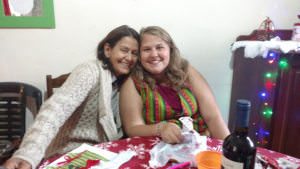
My first stop was my host family. From them, I learned your language, I learned your customs, I learned, from the rich, aboutthe poor. They taught me your specific phrases, like “¿No ve?” (“You know?), “¡Que macana!” (“What a bummer!”), “Qué tienes en tu tutuma” (“What do you have in your big pumpkin?”—“What were you thinking?!”). They laughed and they loved me and they welcomed me into their family with birthdays and holidays, vacations and movie nights. I felt your love there, the welcoming embrace of your family-centric nature.
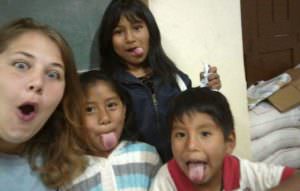 Then I moved into my new home: your Franciscan Social Center, where the most vulnerable of your Cochabambinos come tofind shelter, healthcare, meals, clothing, and people who love them. Some of your most humble children welcomed me—they gave me a place to come home to, a work to be involved in, a global Church to continue to be a part of.
Then I moved into my new home: your Franciscan Social Center, where the most vulnerable of your Cochabambinos come tofind shelter, healthcare, meals, clothing, and people who love them. Some of your most humble children welcomed me—they gave me a place to come home to, a work to be involved in, a global Church to continue to be a part of.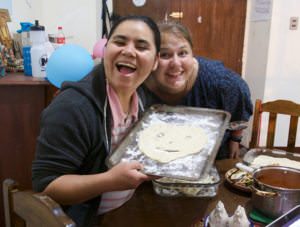
Next, I visited Manos con Libertad: run by your children, for your children in need of love in a system of injustice. There, I met Yrene. She taught me sarcasm, international politics, honesty, strength, and motherhood. She showed me the strength of your women—their perseverance, their curiosity, their thirst forknowledge and independence. She also taught me how to cook your food, how to sing your music, and how to make puns in your language. She shared her family with me, and allowed me to be a part of it—let me 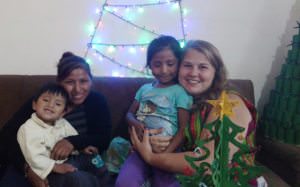 love her children and learn from her children.
love her children and learn from her children.
Finally, I found your women’s prison here in the city: San Sebastian Mujeres. I was terrified the first times I entered—that I wouldn’t connect, wouldn’t understand, wouldn’t be able to ‘help’ these women. How wrong I was! These are your strongest women—the women who work and pray, mother and father, laugh and cry and worry and celebrate, and opened their hearts when I opened mine. These women of yours taught me to crochet, to make cards and clothes, to appreciate and work hard for education, to put others first, and the beauty and power of ministry of presence.
Bolivia, thank you, for mothering these women who have changed my life and taught me your traditions, your culture, and their strength. You will always be my second llajta, my second patría, my second home.
Paz y bien y hasta pronto,
Tu wawita, Catherine
Reflection question: In what ways can you express gratitude to those who have welcome you?

